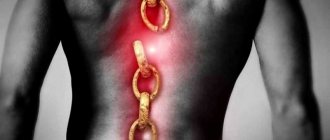What painkillers can you take while breastfeeding?
When breastfeeding, it is safe to take the following painkillers: Paracetamol, Ibuprofen, Drotaverine (“No-shpa”), Ketorolac (“Ketorol”, “Ketanov”, “Ketalgin”). Injections of lidocaine or articaine are suitable for pain relief during dental treatment. For local anesthesia for bruises and some other injuries, you can use ointments based on diclofenac.
| Allowed | Prohibited |
| Paracetamol | Metamizole sodium (Analgin) |
| Ibuprofen | Nimesulide (“Nimesil”, “Nise”) |
| Drotaverine ("No-shpa") | Acetylsalicylic acid (“Citramon”, “Aspirin”) |
| Ketorolac (“Ketorol”, “Ketanov”, “Ketalgin”) |
Headaches while breastfeeding
Mothers often experience headaches during breastfeeding. In these cases, it is not always possible to do without medication, but taking some of the usual effective painkillers can be dangerous for the baby.
Causes of headaches
The causes of headaches in women after childbirth can be very different from “usual” ones, because after the birth of a child, the mother’s life changes significantly. Specific reasons may be:
- a sharp change in hormone levels;
- overwork due to sleepless nights;
- back pain due to constantly carrying a baby in your arms;
- not drinking enough (you need to drink more when breastfeeding);
- postpartum depression.
Types of headaches
The most common types of headaches during breastfeeding are tension
and
migraine
. If tension headaches are relatively easy to bear (usually these are pressing pains in the temples and forehead like a “helmet” of medium and mild intensity, which go away after rest), then the situation with migraines is worse.
Terms of use
Dr. Komarovsky, for example, recommends avoiding the use of painkillers while breastfeeding or pregnant, as some drugs simply have not undergone proper clinical studies. However, if a woman cannot tolerate severe pain, there is no point in waiting for it to go away on its own or using dubious traditional methods. Here are a few rules that will help you quickly deal with the problem and avoid harming yourself and your child:
- It is important to understand: painkillers only relieve the symptom, but do not cure the disease itself. Therefore, in case of painful discomfort, it is recommended to consult a doctor, find the cause of the discomfort and eliminate it. So, if you have a toothache, visit the dentist; if you have pain in your ear, visit an ENT doctor. If the root cause is not eliminated, the pain will occur again and again, requiring another dose of medication.
- Even for a drug prescribed by a doctor, check the instructions, or rather the section “Use during pregnancy and breastfeeding.” There are no prohibitions - take it, and in the recommended dosage. But! The quantitative transfer of drugs into mother's milk has been studied only for a few drugs. Therefore, in most cases, you will see that the drug has not been studied during pregnancy and lactation, or pregnancy and lactation are contraindications for use (precisely due to the lack of studies on this group). Some mothers try to reduce the harm of drugs by reducing the dose. It is not recommended to do this; the expected effect will not happen (especially if we are talking about products that are acceptable during breastfeeding!).
- Look in the instructions for an indicator that is important for us - the drug elimination period. As a rule, it is the same for blood plasma and breast milk. This way you can calculate the period when the drug leaves your body. Analgesics penetrate into the blood and into mother's milk at the same time: this requires only half an hour, the maximum concentration occurs after 1–1.5 hours. And they appear longer – up to 2–7. The half-life of paracetamol, for example, is about 3, and acetylsalicylic acid - up to 7.
Causes of headaches during breastfeeding
Headaches are not an independent symptom, but a manifestation of a number of disorders. These may be factors such as hormonal imbalance, vitamin deficiency, as well as pathologies of individual organs and systems. During breastfeeding, tension headaches and migraines often occur, as well as those associated with changes in hormonal levels.
Tension headaches
Main article: Tension headache
This type of headache is often associated with stress, lack of sleep, and nervous tension. It is described as a sensation of squeezing the head in the form of a hoop, without additional symptoms such as nausea, increased sensitivity to light, and others. Tension headaches can be acute or chronic, but often go away after normalizing your sleep and rest schedule, as well as replenishing vitamin and mineral deficiencies.
Migraine
Migraine is one of the common types of headaches. It occurs independently and is not associated with pathologies of other organs and systems. Before an attack of pain, a migraine aura often appears, which is a complex of characteristic symptoms:
- increased sensitivity to bright light, lacrimation;
- increased reaction to loud sounds;
- nausea, dizziness, appearance of dark circles in the field of vision;
- rapid pulse.
Migraines often worsen in women during breastfeeding. The main reasons are sleep disturbances, hormonal changes, and increased anxiety. Specific potent drugs are used for treatment, but they are not recommended for use during breastfeeding. To improve your well-being, you can massage your neck and head, provide yourself with rest and use relaxing essential oils.
Other reasons
Headaches during breastfeeding are a consequence of the general condition of the body. They can occur for many reasons:
- increased levels of certain hormones in the blood;
- increased anxiety;
- lack of sleep, frequent awakenings at night;
- tension in the muscles of the neck and back.
It is important to understand that chronic spinal diseases may worsen during breastfeeding. During pregnancy and then when caring for a child, the load on the lumbar region increases, and problems in the cervical and thoracic regions may also arise. This affects the blood supply to the brain and can cause severe pain.
Dental treatment
Some young mothers are afraid to go for dental treatment because they read somewhere that anesthesia can have a bad effect on the quality of breast milk. In reality, this is not so: the doctor gives a local injection, which has a short-term effect and is quickly eliminated from the body, and therefore does not cause any harm to the baby’s health? As stated in the online magazine “Doctor Zubov”. So it is possible and necessary to treat teeth with pain relief during lactation. It is better to clarify in advance which drug will be administered to you, and inform the dentist about breastfeeding. In this case, the doctor will select the optimal remedy that will not only provide excellent pain relief during dental treatment, but will also be eliminated from the body as quickly as possible.
List of approved drugs
Now a woman can turn to the Internet for help: just enter the appropriate name of the medicine into a search engine, and several sites will tell you whether it is allowed to be taken during pregnancy or lactation. For example, there is a universal reference book e-lactation. If we talk about painkillers, which are usually used for severe headaches and toothaches, as well as during extremely painful periods, here is a complete list of tablets that you can take, as well as intramuscular, external and rectal agents:
- Preparations containing paracetamol reduce temperature and pain, and also help to subside inflammatory processes. The main part leaves the body a couple of hours after administration.
- Ibuprofen-based drugs work for toothache, discomfort in joints and muscles. Suppositories and tablets relieve fever and help cope with the symptoms of ARVI. When using medications, less than one percent of the active substance gets into the milk - this is completely safe for the baby.
- Of the antispasmodics, that is, drugs that relax smooth muscles and relieve spasms, no-spa is allowed during breastfeeding. The drug eliminates discomfort in the intestines and can be used for stomach cramps or renal colic.
- If a nursing mother needs to treat caries or remove a tooth, injections of ultracaine or lidocaine can be used to anesthetize these processes. They quickly provide an analgesic effect and are then just as quickly eliminated from the body.
- In case of particularly severe pain syndrome, it is allowed to take “Ketorol” (also known under the names “Ketanov” and “Ketalgin”). This non-steroidal anti-inflammatory drug quickly provides pain relief. Used for migraines and menstrual pain. Two hours after administration it passes into breast milk, but its concentration is so low that even American and European doctors allow Ketorol to be taken by nursing mothers.
- Diclofenac. If the pain appears as a result of a bruise, sprain or other “sports” injury, doctors suggest using special anti-inflammatory pain-relieving ointments. The substance does not affect the quality and quantity of milk in any way and is quickly eliminated from the body. Diclofenac is contraindicated in people with high blood pressure or peptic ulcers.
Diagnostic methods
Comprehensive diagnosis is an important stage for prescribing competent treatment. It is important to determine what caused the headaches in order to select effective and safe medications. The doctor may prescribe the following stages of examination:
- general and biochemical blood tests;
- determination of hormone levels in the blood;
- diagnostics of the condition of the heart and blood vessels (pressure measurement, electrocardiography, Dopplerography of the vessels of the neck and head);
- radiography of the thoracic and cervical spine;
- MRI, CT as necessary.
At the Clinical Brain Institute, you can undergo a full examination to determine the cause of headaches during breastfeeding. In our center, diagnostics are carried out using modern equipment, which allows us to obtain the most accurate results.
Prohibited drugs
All of these pills are almost certainly in your medicine cabinet. But they are strictly prohibited for women who are breastfeeding. This list included:
- Analgin. In most countries, this drug is generally prohibited for use (not only by nursing women), as it contains a substance that provokes the development of agranulocytosis. If it gets into breast milk, it has an extremely negative effect on the functioning of the baby’s kidneys and circulatory system. Analgin is part of Baralgin, Tempalgin, Spazmalgon, Pentalgin, Spazgan. Approved for use only in the most extreme cases, at high temperatures that are not affected by other medications. Then an intramuscular injection of analgin with diphenhydramine and papaverine is given. However, only a doctor can prescribe such radical methods!
- "Nimesil" ("Nise", "Nimid" and other drugs based on nimesulide). Has an almost instant pain relieving effect. But due to the lack of a sufficient number of clinical studies, it is prohibited for use by pregnant and lactating women, as well as children under 12 years of age.
- Acetylsalicylic acid (aspirin and citramone). It negatively affects the functioning of the gastrointestinal tract of the baby and contributes to disruption of the kidneys and hematopoietic system.








